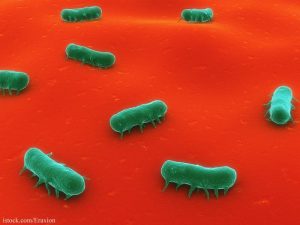There are two Salmonella strains involved in the outbreak linked to contaminated bean sprouts that has sickened 87 people in 11 states. And both of them are rare, according to the Centers for Disease Control and Prevention (CDC).
 To solve and track this outbreak, public health investigators are using PulseNet, a national subtyping network of public health agencies that is coordinated by CDC. When patients are diagnosed with a foodborne bacterial infection, a DNA “fingerprinting” test, called pulsed-field gel electrophoresis (PFGE), is performed on the bacteria and the “fingerprint” is shared on the network.
To solve and track this outbreak, public health investigators are using PulseNet, a national subtyping network of public health agencies that is coordinated by CDC. When patients are diagnosed with a foodborne bacterial infection, a DNA “fingerprinting” test, called pulsed-field gel electrophoresis (PFGE), is performed on the bacteria and the “fingerprint” is shared on the network.
The two strains associated with this outbreak have rarely surfaced on PulseNet, according to the CDC. “On average, less than 10 Salmonella bacteria with these PFGE patterns are reported to PulseNet each year.”
The rarity of the strains may have something to do with the high percentage of hospitalizations associated with this outbreak. About 27 percent of those sickened have been hospitalized. On average, 20 percent of people sickened in a Salmonella outbreak require hospitalization.
Salmonella poisoning symptoms include fever, diarrhea (which may be bloody), nausea, vomiting and abdominal pain. In rare cases, the infection can travel to the bloodstream producing more severe illnesses.
This outbreak has been linked to mung bean sprouts produced by Wonton Foods Inc. of Brooklyn. Many of the contaminated sprouts were served at Asian restaurants on the East Coast. The names of those restaurants have not been disclosed by health officials. By state, the most recent case count is as follows: Connecticut (7), Maine (3), Massachusetts (35), Montana (1), New Hampshire (4), New York (14), Ohio (3), Pennsylvania (10), Rhode Island (6), Vermont (3), Virginia (1).




